Writings: Time for a tv timeout

Over the past month or so, one of the stories that keeps playing in my head is this:
The “news” keeps us from knowing what’s going on.
You know it’s true: We have friends to feed in parts of the world, and in parts of the towns we live in (wherever we live!) who need to eat & don’t have enough, but we’ll do that after the Olympics is over. Maybe.
We have people around us who need a hug. Who need a raincoat. Who need counseling to sort out those angry flashes in their head.
People who need a voice.
When you look them in the eye, you know it’s time to share. You can feel it. When you look at the television, you can feel that, too, but its job is to quiet your anger & shift where you focus, away.
In hockey games & in American football, there is a planned timeout halfway through the period that is simply a tv timeout, so they can run ads. Nobody’s tired & the coaches don’t NEED the timeout, and sometimes it even messes up your team’s momentum.
Maybe we can reverse that. Take a timeout from the television & its pretend news, and take a look around at the real news. With people we can actually touch & feel & hear & see, in living colour.
Way cooler.
Love you –
Brother Ian
Poetry of music: John Prine, with ‘Spanish Pipedream’
Blow up your TV. Eat a lotta peaches.
Thoughts & art: Full body art, in its truest sense
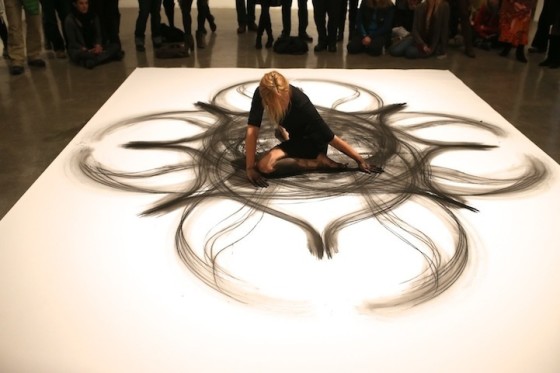
Heather Hansen is a New Orleans-based artist who really puts herself into her work. In her project, “Emptied Gestures,” she creates something like you’ve never seen before.
Click here for the rest of the story, from our friends at Distractify.
Whales: Monika, with the grey whales in Baja
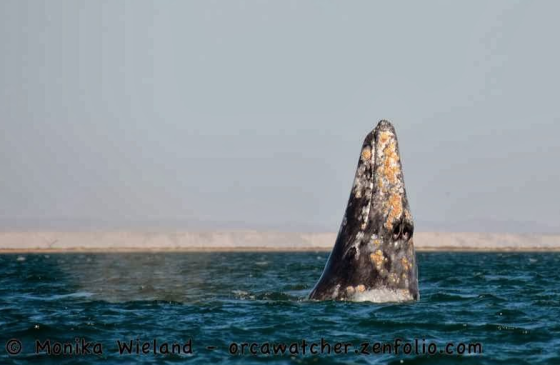
I love to read Monika Wieland‘s take on the way things work in the natural world…she writes so well & you already know I’m a fan of her pictures!
Here’s her report from Baja, with her first day on the water, with her observations & photos.
Music: Sarah McLachlan, with St. Francis’ ‘Let Me Be an Instrument of Thy Peace’
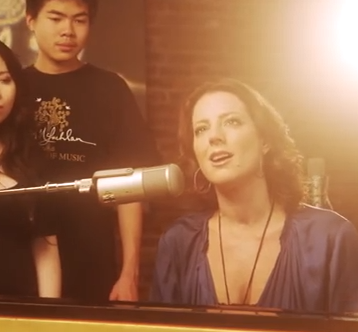
Guess this is a special one – learned the prayer during my first year teaching, at a Roman Catholic high school in New Orleans, and it’s been part of my daily practice ever since. That makes it even more cool that Sarah makes the beautiful words & beautiful spirit sound so beautiful.
Thanks, Sarah, for giving.
Lord, make me an instrument of Thy peace;
where there is hatred, let me sow love;
where there is injury, pardon;
where there is doubt, faith;
where there is despair, hope;
where there is darkness, light;
and where there is sadness, joy.
O Divine Master,
grant that I may not so much seek to be consoled as to console;
to be understood, as to understand;
to be loved, as to love;
For it is in giving that we receive,
it is in pardoning that we are pardoned,
and it is in dying that we are born to eternal life.
Amen.
-often attributed to Brother Francesco

Wordplay: Lux, with “Onomatomania”
Someone I’ve been reading lately is Georgia Tech’s Thomas Lux – most of us are trying to get closer & closer to getting it right, in so many ways in the things around us. I love the way he explores that, here:
Onomatomania
Thomas Lux
the word for the inability to find the right word,
leads me to self-diagnose: onomatomaniac. It’s not
the 20 volume OED, I need,
nor Dr. Roget’s book, which offers
equals only, never discovery.
I accept the fallibility of language,
its spastic elasticity,
its jake-leg, as well as prima ballerina, dances.
I accept that language
can be manipulated towards deceit
(ex.: The Mahatmapropaganda, i.e., Goebbels);
I accept, and mourn, though not a lot,
the loss of the dash/semi-colon pair.
It’s the sound of a pause unlike no other pause.
And when the words are tedious
and tedious also their order–sew me up
in a rug and toss me in the sea!
Language is dying, the novel is dying, poetry
is a corpse colder than the Ice Man,
they’ve all been dying for thousands of years,
yet people still write, people still read,
and everyone knows that nothing is really real
until it is written.
Until it is written!
Even those who cannot read
know that.
Copyright © 2014 by Thomas Lux.
Writings: A New Normal: Ten Things I’ve Learned About Trauma (Catherine Woodiwiss)
 I love the way Catherine speaks to the problems we all have, as well as coming to some kind of terms, gracefully, when things happen:
I love the way Catherine speaks to the problems we all have, as well as coming to some kind of terms, gracefully, when things happen:
A New Normal: Ten Things I’ve Learned About Trauma
by Catherine Woodiwiss
I wasn’t really expecting painful things to happen to me.
I knew that pain was a part of life, but — thanks in part to a peculiar blend of “God-has-a-plan” Southern roots, a suburban “Midwestern nice” upbringing, and a higher education in New England stoicism — I managed to skate by for quite some time without having to experience it.
After a handful of traumas in the last five years, things look different now.
Trauma upends everything we took for granted, including things we didn’t know we took for granted. And many of these realities I wish I’d known when I first encountered them. So, while the work of life and healing continues, here are ten things I’ve learned about trauma along the way:
1. Trauma permanently changes us.
This is the big, scary truth about trauma: there is no such thing as “getting over it.” The five stages of grief model marks universal stages in learning to accept loss, but the reality is in fact much bigger: a major life disruption leaves a new normal in its wake. There is no “back to the old me.” You are different now, full stop.
This is not a wholly negative thing. Healing from trauma can also mean finding new strength and joy. The goal of healing is not a papering-over of changes in an effort to preserve or present things as normal. It is to acknowledge and wear your new life — warts, wisdom, and all — with courage.

2. Presence is always better than distance.
There is a curious illusion that in times of crisis people “need space.” (Click here to read the rest of Catherine’s remarks.)
Here’s more about Catherine.
And…our thanks to the good folk at Sojourners for sharing this essay! Sign up for their newsletter!


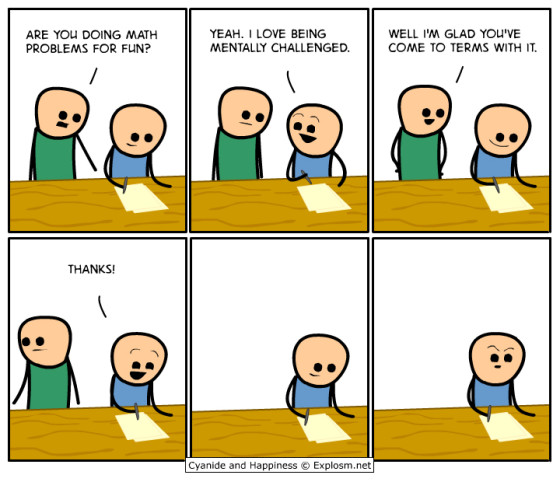
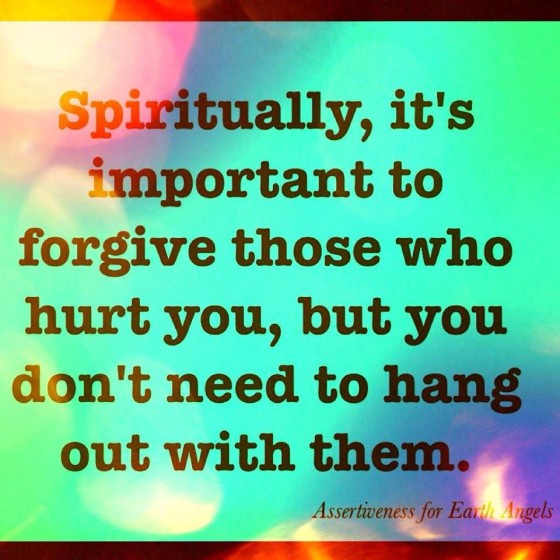

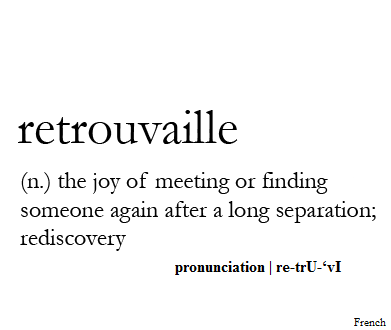
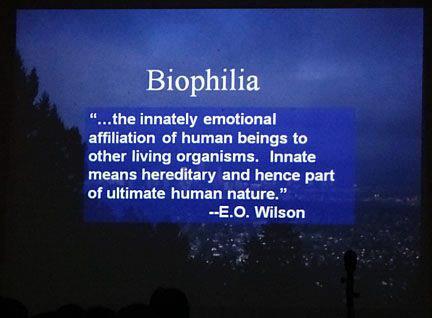


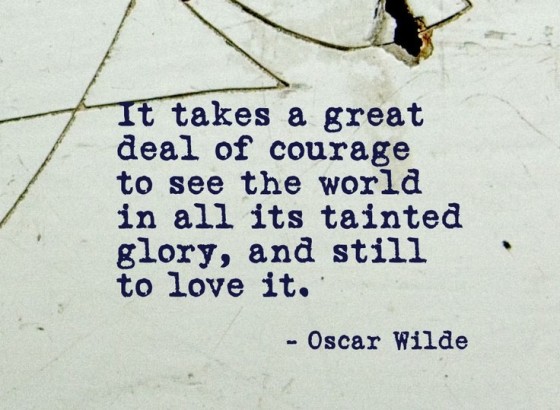

 Over the centuries, Brother Ian has been collecting stories & information & discourses for the purpose of elevating the human condition as needed, dissecting it when necessary, and building the case for hope.
Over the centuries, Brother Ian has been collecting stories & information & discourses for the purpose of elevating the human condition as needed, dissecting it when necessary, and building the case for hope.